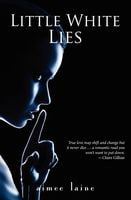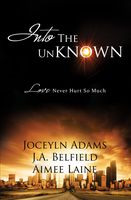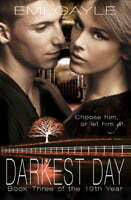The Importance of Emotions and Writing – from the authors of One More Day (out now!)
First, you think, ‘am I dreaming?’
Turns out you’re not.
Then things start to get serious. Nobody will look at me. Why isn’t anyone moving? Why don’t they respond when I talk to them? You might go through each of these thoughts before coming to a conclusion that may, possibly, have some truth to it. Is the world frozen?
Then, of course, denial will kick in again. Of course the world isn’t frozen. That’s completely impossible and definitely implausible.
But doubt will creep into your mind. If the world isn’t frozen, then what else could this be?
Then you might consider alternate possibilities, but discard them all. After all, if nobody is moving, speaking, even breathing, what else could it be but the world freezing? Time has frozen. You accept it.
Now that you’ve accepted it, though, what can you do? You think about it. You examine what you were doing when the world froze. Does it have something to do with you?
You discard that idea almost instantly, because you’re not so egotistical as to assume the world revolves around you. But then you consider it again….
Why, if it has nothing to do with you, are you the only one still moving? Or are you? Is the whole world frozen? Are you just imagining that you’re moving, when you’re really stuck in the same position as everyone else? Does everyone believe they are moving, just as you are?
Doubts spring up in your mind. Maybe you’re just as stuck as everyone else. Maybe you can’t do anything more to help solve the problem than anyone else can. But you have to do what you can, right?
This, in my imagination, is the general thought process of one plagued with a frozen world around them. Notice the amount of time spent on confusion, denial, and then doubt. Imagine, if you were in this situation, what your thought process would be. Would it be similar to this? Would it follow the same pattern of emotions?
We humans have an emotional weakness. We don’t like to talk about it a lot, and we certainly don’t state it very often. But it’s true, isn’t it? We spend too much time on emotions and not enough time on logic. Or worse, because something doesn’t seem to have logic, we spend too much time trying to make it into logic. This is a major flaw, but where would our writing be without it?
Yes, we have flaws. We think too much, feel too many emotions. But would a book be interesting if the character always knew what to do instantly? If they never felt any emotions? Would you read a book where you can’t empathize with the character because they are incapable of thoughts and feelings?
The answer is no. No, you wouldn’t.
Emotions are the driving force behind writing of all sorts. Can you write nonfiction without being passionate about a subject? Can you write fiction without understanding your characters’ emotions first? And poetry! How can you write poetry without a mood, poetry without emotion? Such a thing doesn’t exist!
You wouldn’t read One More Day if every single character in it knew that time had frozen and knew exactly how to fix it right from the start. So while emotions can be considered weaknesses, the ability to feel them, and to understand where they come from is an ability that any writer must have before they can put their thoughts onto paper.
Emotions are the essence of writing.
Thanks so much for this guest post! And now, read One More Day by winning it below!













Thanks for hosting me, Aimee! I had lots of fun writing this post.
Oh, yes, emotion in writing is king. The post more or less said it all, so I’ll leave it at, “Thanks for being a great stop on our book’s tour, Aimee!”
I’m talking about emotions in writing over at Aimee Laine’s today. http://t.co/JY5lZxZEHy